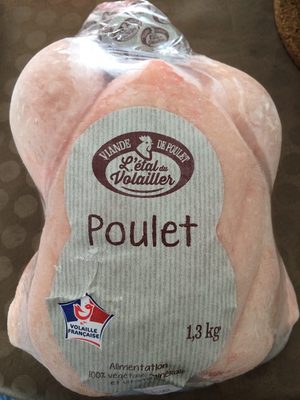
Barcode: 20594558
Poulet
DOUBTFUL
📝 Reason: The product contains chicken, which is a type of meat. Without explicit Halal certification, the Halal status of the meat cannot be confirmed, making it doubtful. Islamic sources emphasize the importance of Halal certification for meat consumption.
📄 Certificates: None
Ingredients:
Details
Is Poulet Halal? Unpacking Its Status and Ingredients
When it comes to food, particularly meat products, many consumers are keen on understanding whether what they are eating aligns with their dietary beliefs, especially among those following Islamic dietary laws. The product in question, Poulet, raises some important questions about its Halal status. In this article, we delve into the details of Poulet, including its ingredients and the reasoning behind its current status.
Understanding Halal Certification
Halal, meaning ‘permissible’ in Arabic, signifies anything that is allowed under Islamic law. For meat to be considered Halal, it must come from a permissible source, the animal must be slaughtered in accordance with Islamic guidelines, and the product should carry appropriate certification indicating its Halal status. This is crucial for consumers who wish to adhere strictly to their diet.
What is Poulet?
In culinary terms, Poulet refers to chicken, specifically the meat derived from this popular poultry. However, although chicken is universally consumed, the Halal aspect of chicken meat in particular is contingent upon several factors, primarily its source and method of slaughter.
Current Halal Status of Poulet
The Halal status of Poulet is currently deemed DOUBTFUL. This raises concerns for Halal-conscious consumers as without explicit Halal certification, the integrity of the meat being consumed cannot be guaranteed. As per Islamic dietary laws, Legitimacy around meat consumption rests heavily on the slaughter method and processing. This makes it essential for products like Poulet to possess clear Halal credentials.
Ingredient Breakdown: Poulet Blanc
The primary ingredient in Poulet is Poulet Blanc. However, within the context of Halal dietary requirements, this ingredient should also comply with Halal standards. Unfortunately, the product notably bears a **missing Halal logo**, which is an indicator of its uncertain status.
E-Numbers and Their Significance
The provided data shows that there are no E-numbers associated with Poulet Blanc. E-numbers often denote food additives that can either enhance flavor, act as preservatives, or modify texture. While the absence of E-numbers may seem favorable, it does not compensate for the notable lack of Halal certification. It’s vital to scrutinize any additives, flavorings, or preservatives that may affect the overall Halal status of a product.
Where Does This Leave Consumers?
Given that there is no Halal certification for Poulet, consumers should exercise caution. The meat industry has seen an increasing demand for transparency, and consumers often seek products that assure them of Halal compliance. The absence of explicit certification signals a significant gap in producer accountability, fostering uncertainty regarding its suitability for Halal diets.
Conclusion: Making Informed Choices
In conclusion, while Poulet is a common dish across many cultures, its Halal status remains doubtful due to the lack of certification. As a responsible consumer, it is imperative to remain informed about the products you choose to consume. If Halal dietary laws are a priority for you, we recommend seeking alternatives that clearly display Halal certification. Ensuring that the foods you consume align with your ethical beliefs is vital, and due diligence is key to maintaining those standards.
